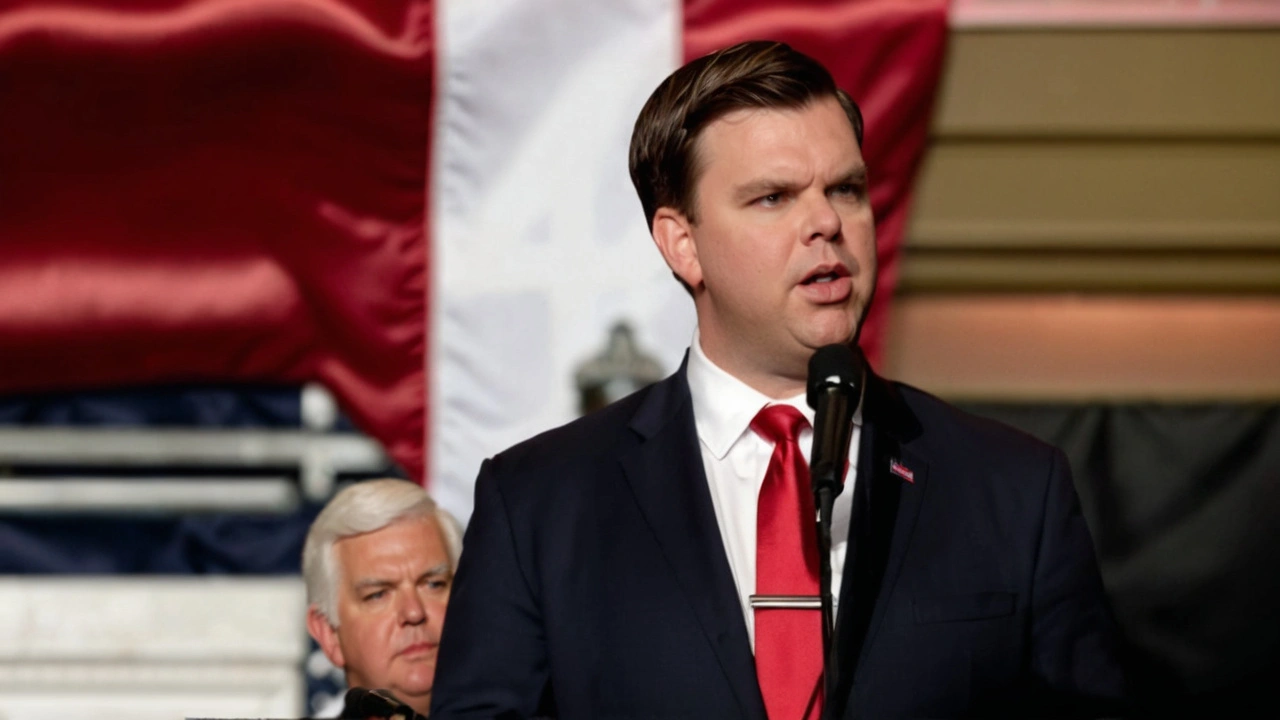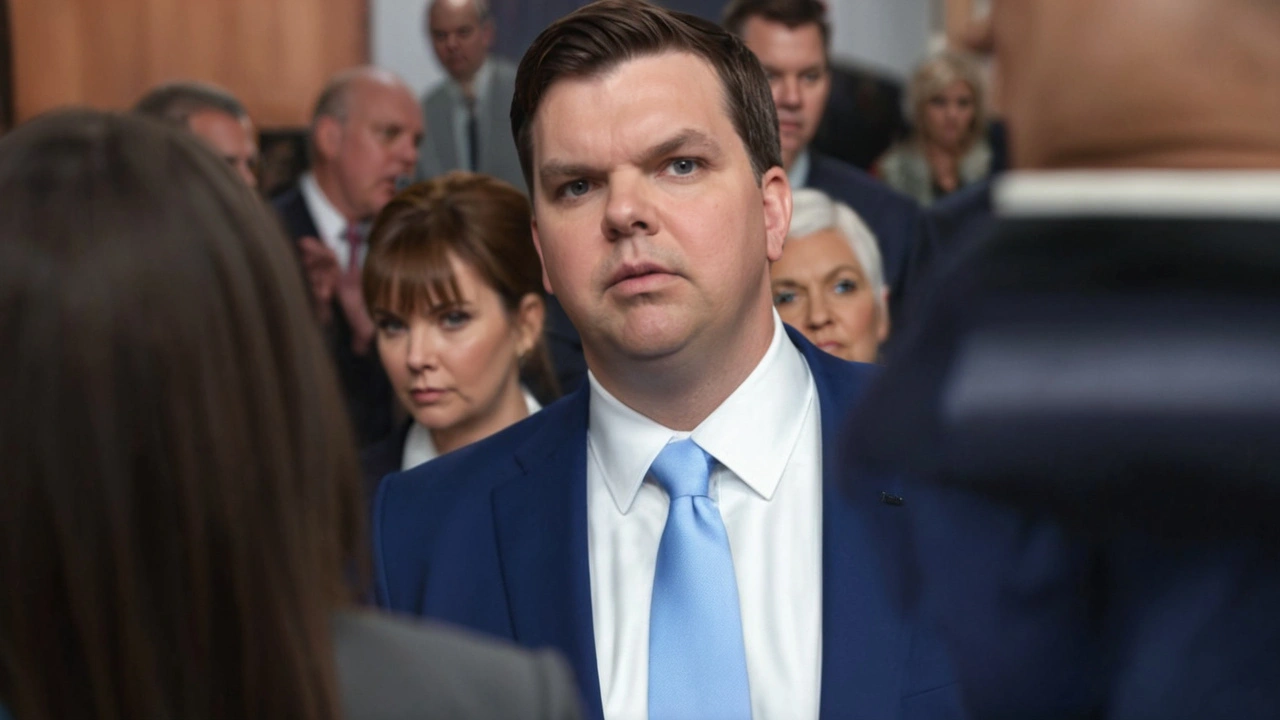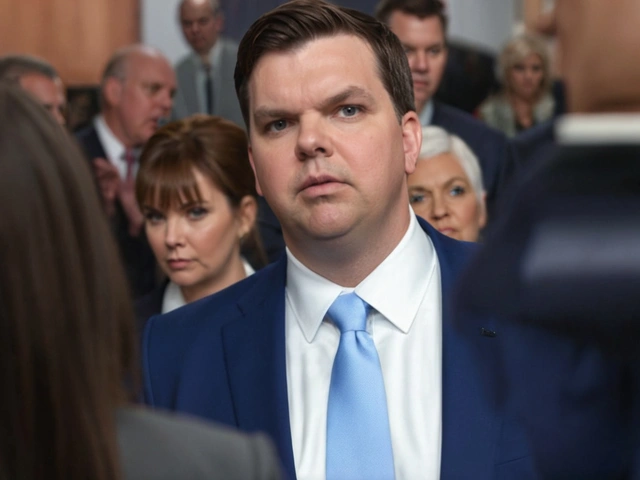JD Vance's Controversial 'Cat Lady' Comments and the Backlash
Ohio Senator JD Vance has found himself in the middle of a heated controversy following his remarks about childless women, whom he referred to as 'cat ladies.’ The comments were initially made in a public forum and quickly drew widespread criticism. Vance attempted to clarify his stance, explaining that his initial comment was meant to be sarcastic. However, far from retracting his remarks, he doubled down, asserting that a significant number of women choosing not to have children represents what he calls a 'major civilizational crisis.'
Vance's position is rooted in the belief that declining fertility and birth rates are symptomatic of a larger societal shift away from family-oriented values. He argues that this shift poses a serious threat to the future of society. According to Vance, the trend of prioritizing careers, personal freedom, or other pursuits over motherhood is contributing to a demographic decline with long-term adverse effects.
The Statistics Behind the Argument
Studies have shown that fertility rates in many developed countries are decreasing. In the United States, the fertility rate has been below the replacement level of 2.1 births per woman for several years. Some experts attribute these trends to economic uncertainties, shifts in cultural attitudes, and the evolving roles of women in the workforce. While Vance sees this as a troubling sign, many people view these changes as part and parcel of modern society's progress.
Criticism and Defense
Vance’s stand has led to substantial backlash, with many accusing him of harboring antiquated views about women and their roles in society. Critics argue that a woman's decision not to have children is highly personal and shouldn't be subject to public scrutiny or moral judgment. Some point out that the term 'cat lady,' often used derogatorily, only serves to demean women who have chosen lives different from traditional family roles.
Sociologists and feminists have also weighed in, suggesting that Vance's comments add unnecessary stigma to women's choices and perpetuate outdated gender norms. They argue for a broader acceptance of diverse lifestyles and greater respect for individual agency.
Political Implications
The controversy surrounding Vance’s comments has also taken a political turn, influencing the discourse in the 2024 election campaign. Opponents have used the remarks to question Vance's suitability for office, labeling his views as out of step with contemporary societal values. They've brought attention to the need for policies that support various family structures and respect women's autonomy over their life choices.
However, Vance's supporters argue that his comments highlight a critical issue about the future stability of communities and societies that cannot be ignored. They agree with him that lower birth rates and declining family values pose significant challenges that require serious discussion.
The Broader Debate on Family and Society
At the heart of this debate are fundamental questions about the nature of family, community, and societal values. What does it mean for society if increasing numbers of women choose not to have children? Are there indeed tangible losses if traditional family structures erode, or is society simply moving towards greater diversity and inclusiveness?
For many, these are not just abstract questions but issues with real-life implications. The trend toward child-free lifestyles can minimize population growth and create demographic imbalances, particularly in aging societies. On the other hand, it can also reflect the progress toward gender equality and the broader spectrum of life choices available to women today.

Pondering the Future
What remains clear is that the conversation sparked by Vance's comments is far from over. Society continues to grapple with the realities of changing family dynamics and the implications for future generations. It raises the need for inclusive discussions that respect individual choices and also consider societal sustainability. Whether viewed as a crisis or an evolution, these changes present an opportunity for deeper understanding and mutual respect surrounding diverse ways of life.



Comments
Oh, so the next national crisis is women choosing cats over kids, how original.
I see both sides here, and while I respect the passion people bring to the conversation, we should also remember that personal choices don’t automatically equate to societal decline. Many women who decide not to have children are doing so for thoughtful, often very strategic reasons – career, health, or simply a desire to live differently. We can’t dismiss those lived experiences as a "crisis" without looking at the broader picture. In fact, diverse family structures can enrich our communities, bringing new perspectives and support networks. If we focus solely on birth rates, we risk overlooking the quality of life and well-being of those already here. Policies that provide real support – affordable childcare, parental leave, flexible work – can help those who want children without penalising those who don’t. Let’s aim for a society where both choices are valued rather than weaponised.
From a policy standpoint, it is essential to balance demographic concerns with individual freedoms. Encouraging higher birth rates through incentives can be effective, yet it must not infringe upon personal autonomy. Studies indicate that when families feel economically secure, birth rates tend to rise organically. Therefore, investment in education, healthcare, and housing can indirectly address the so‑called crisis. Let us not forget that a robust society is built on both population stability and the empowerment of its citizens.
The conversation is reminiscent of ancient debates on the purpose of civilization. Are we measuring a nation's strength by the sheer number of its births, or by the depth of its cultural contributions? When a society forces a singular model of existence, it stifles the very creativity that drives progress. The "cat lady" trope, while perhaps meant humorously, becomes a weapon when wielded to police personal choices. Let us instead celebrate the myriad ways individuals enrich our collective narrative, whether through motherhood, artistry, or scientific discovery.
Great points, everyone! 🌟 It's all about choices and respect. 😊
When analyzing the demographic data presented in recent policy briefs, one must first acknowledge the multifactorial nature of fertility trends. Economic volatility, for instance, directly correlates with delayed family planning, as documented in the 2022 OECD report. Moreover, cultural shifts-particularly the increasing valuation of individual self‑actualization-have redefined normative life milestones. These variables, when aggregated, generate a complex predictive model that cannot be reduced to a simplistic "crisis" narrative. Additionally, the labor market's evolving structure, with its emphasis on gig economy flexibility, imposes both opportunities and uncertainties for prospective parents. Healthcare access disparities further compound the issue, as communities lacking comprehensive reproductive services inevitably exhibit lower birth rates. It is also crucial to differentiate between voluntary childlessness and involuntary infertility; conflating the two obscures the underlying public health concerns. Meanwhile, sociological research underscores that societies with robust social safety nets often experience higher fertility without coercive policies. Hence, a holistic approach-incorporating economic incentives, healthcare reform, and cultural acceptance-is imperative for any meaningful demographic intervention. In sum, the conversation should pivot from moralizing rhetoric to data‑driven, compassionate policy design that respects autonomy while addressing genuine systemic barriers.
It is morally reprehensible to shame women for their reproductive choices; every individual deserves respect.
Respect is indeed the cornerstone here 😊. Everyone’s path is unique, and we should uplift each other rather than judge.
We’ve all seen the headlines, but a deeper look reveals layers of nuance.
Indeed, the media often reduces complex demographic trends to sound‑bite controversies; it’s essential to consider longitudinal data and contextual factors!!!
Balance is key; policies must reflect both societal needs and personal liberties.
Any attempt to dilute national growth with liberal agendas jeopardizes the very fabric of our country; we must prioritize pro‑family legislation now.
Yo, folks! Let’s keep it real-people should do what makes them happy, whether that’s kids or not.
Exactly! Life’s about choices, and every path has its own rewards.
Just listening to all sides, and I think we can all learn a thing or two.
Heh, typical drama – people love to hype up a simple comment into a full‑blown saga, lol.
Honestly, the whole "crisis" narrative feels overblown to me.
Overblown? No, it’s a matter of national survival. If we ignore the birth‑rate dip, we risk economic decline and cultural erosion. It’s not a trend; it’s a warning sign that we need to act on before it’s too late!
But, dear reader, consider this: the "warning" may stem from policies that undervalue personal autonomy, not from the choices themselves!!!
It’s fascinating how a single off‑hand remark can spiral into a cultural earthquake, revealing deep‑seated anxieties about identity, purpose, and the future. Some see a "crisis" while others see evolution; perhaps the truth lies somewhere in the middle, shaded by personal experience, socioeconomic pressure, and the invisible hand of history. In any case, the dialogue must continue, open‑hearted and well‑informed.